Current Editorial: Journalists should be considered essential
While the Current has been getting by, returning to campus (safely) might help things run smoother
The current staff hopes to be at the newsroom sometime soon; this photo was taken before the campus shutdown. (File photo)
Since the beginning of the COVID-19 pandemic, the Current, American River College’s student-run publication, has been charged with a great deal of extra responsibility.
On top of having to keep our audience informed during a crucial time, we’ve also had to endure the challenge of doing so virtually, from our homes. And while it’s possible to do, it has been absolute hell at times for various reasons.
Unfortunately, the camaraderie isn’t quite the same for our newsroom because we only meet with each other on Zoom. Before going online-only, our physical newsroom was open four days a week, for about four hours, sometimes longer. However, we only had to meet as a class for no more than an hour and 45 minutes; the rest of the time was open to completing work.
Even if limited time is spent there and it is mostly empty, the Current should maintain some presence on campus, as long as it is done safely. In many ways, journalists should be considered essential, especially when the future is uncertain, and developments can occur at any minute.
While there may have been some occasional unproductivity in the newsroom before and after class, those times were valuable for team building, which led to better work. This isn’t to say that we don’t work well with each other now; it’s just that it’s not quite the same as it might have been before.
We’ve also had to deal with the challenge of training new staff writers, without the benefit of walking to their workstation to help them out. Unlike the editors, who have been here at least two semesters and have interacted with each other in person pre-pandemic, our new staff writers have only interacted with us virtually, making it harder to help them.
One of the biggest challenges of the online newsroom environment is finding sources for our stories. Under normal circumstances, almost all of our potential sources would be available to see on campus at least once a week.
Now that we’re only able to reach out to those potential sources via email, it’s become more comfortable for them to brush those emails to the side, without the worry of a reporter visiting their office or workspace.
Some categories of our publication, like Photo of the Day and Campus Pulse, have been all but eliminated since we haven’t been on campus.
The staff in other newsrooms in the Los Rios Community College District have similar feelings about reporting from home. Jen Lum, the staff writer for the Express at Sacramento City College, also senses the slightly disconnected feeling of a virtual newsroom.
“I would say that since we are not in the classroom, the staff doesn’t get the in-person connections,” Lum said in an email to the Current. “Zoom has been very helpful, but it was disappointing not being able to have the newsroom experience. Especially for my first official semester on the Express.”
Just like us at the Current, Lum has also encountered difficulties with getting in contact with sources during the pandemic.
“Most of the interviews I had done before the pandemic were via phone,” Lum said, “It is really easy to connect with sources in that aspect, but getting a response back is a different story. Sometimes I find myself sending email after email trying to coordinate a time to interview my source. Or worse, sometimes I do not hear back at all.”
Despite these frustrations, Lum still believes that the newsroom should remain virtual to ensure the staff’s safety. According to Lum, despite these hardships, the Express is getting by just fine under the current circumstances.
“As of right now, I would not feel safe returning to the newsroom. As much as I would like to return, I know it is not worth putting people in danger of catching COVID-19,” Lum said. “The Express is fully online, and it seems to be working so far. It is not an ideal situation, but we are making the most of it. Until COVID-19 is under control, I think The Express should continue remotely.”
On Sept. 16, LRCCD Chancellor Brian King released an email statement informing the district that almost all classes in the spring will be held online, “with only limited exceptions for programs that train first responders or those in areas that have an urgent and significant health and safety on our communities.”
The Emergency Medical Technology program at ARC is an example of one of those exceptions. They have been meeting on campus and taking precautionary measures such as wearing a mask and filling out a COVID-19 “screening form” for symptoms. We at the American River Current believe that we could operate on campus the same way. And while it might involve some risk, it’s one we’re willing to take as essential workers and watchdogs of the ARC community.


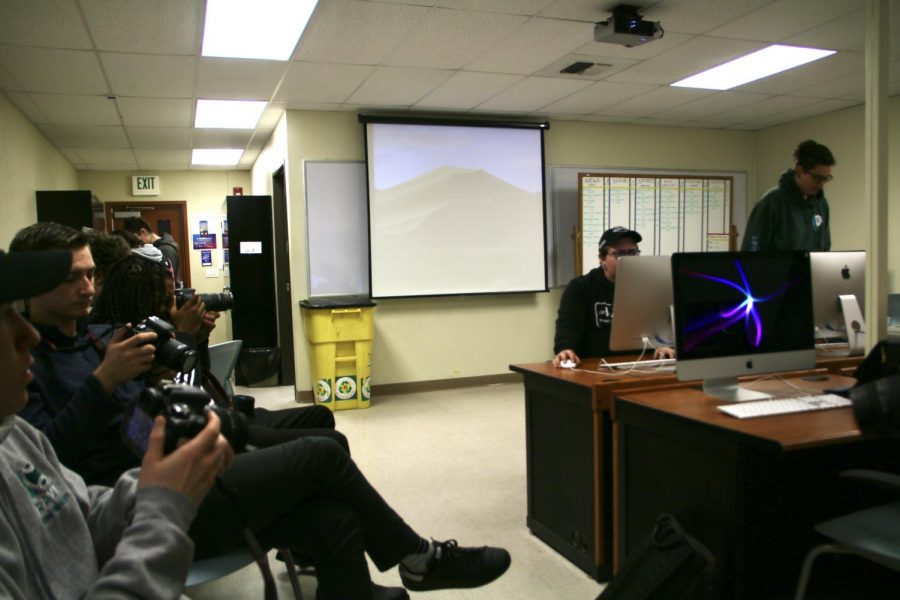

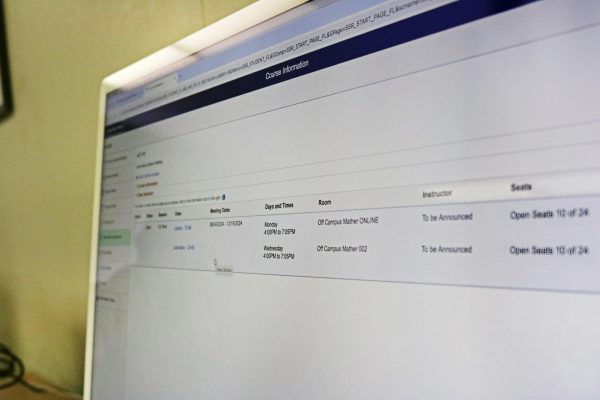

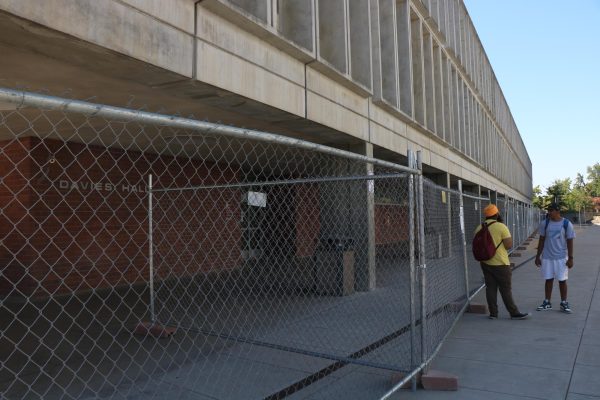
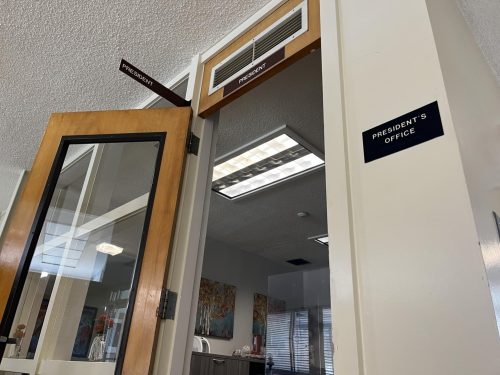





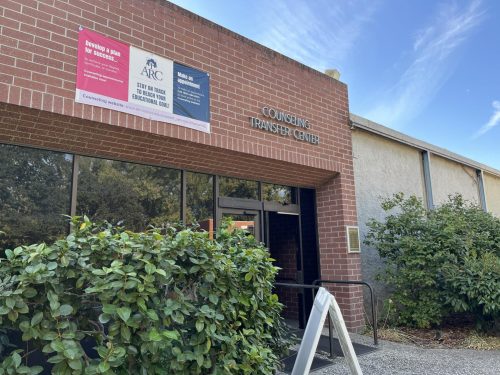
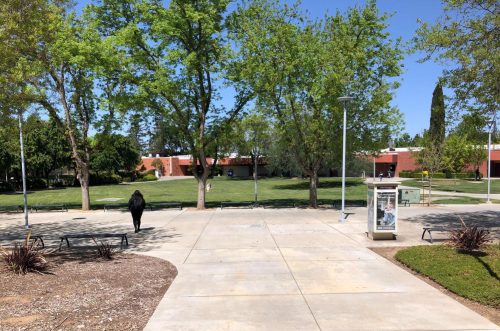

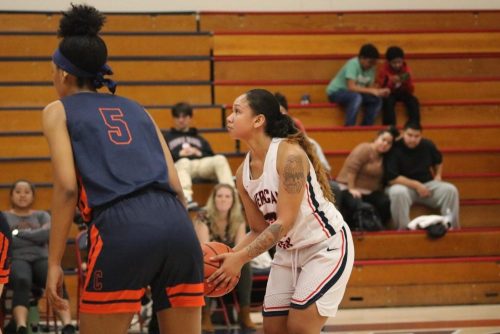
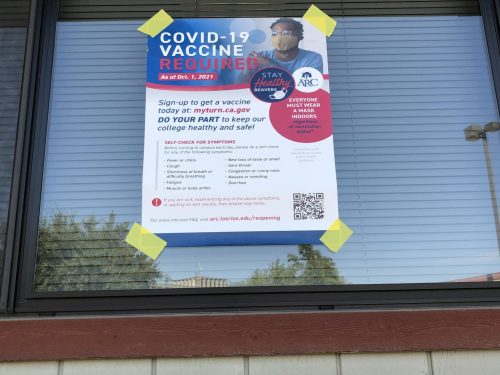
J • Dec 21, 2020 at 2:06 pm
As an essential worker, this is incredibly rude. I understand the frustrations but that is the cost of safety. We are in the purple tier and things are only getting worse. Asking to go back in person when it’s unnecessary is disrepectful. Everyone has had to adapt this year. You are not unique.